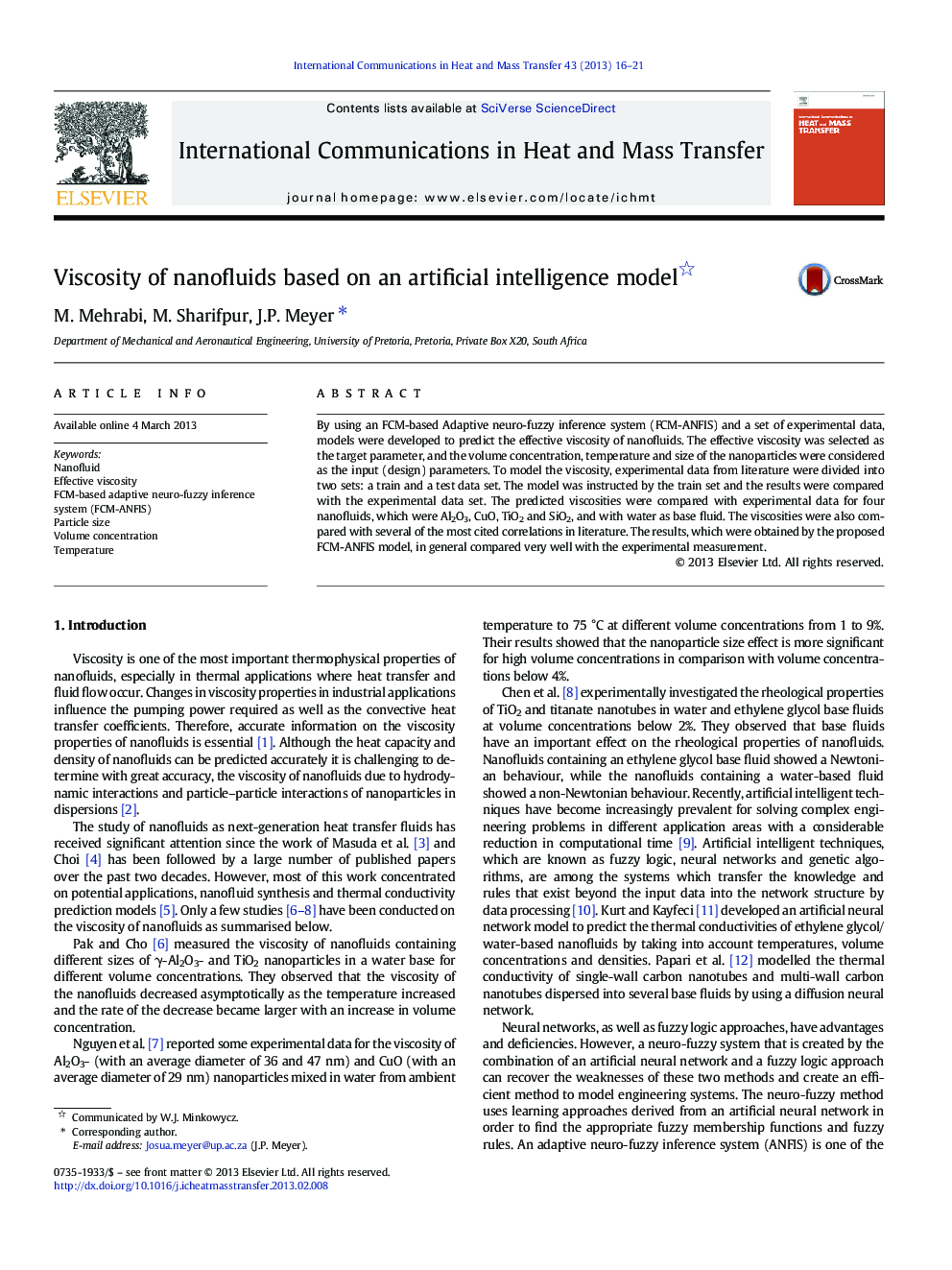| Article ID | Journal | Published Year | Pages | File Type |
|---|---|---|---|---|
| 653449 | International Communications in Heat and Mass Transfer | 2013 | 6 Pages |
Abstract
By using an FCM-based Adaptive neuro-fuzzy inference system (FCM-ANFIS) and a set of experimental data, models were developed to predict the effective viscosity of nanofluids. The effective viscosity was selected as the target parameter, and the volume concentration, temperature and size of the nanoparticles were considered as the input (design) parameters. To model the viscosity, experimental data from literature were divided into two sets: a train and a test data set. The model was instructed by the train set and the results were compared with the experimental data set. The predicted viscosities were compared with experimental data for four nanofluids, which were Al2O3, CuO, TiO2 and SiO2, and with water as base fluid. The viscosities were also compared with several of the most cited correlations in literature. The results, which were obtained by the proposed FCM-ANFIS model, in general compared very well with the experimental measurement.
Related Topics
Physical Sciences and Engineering
Chemical Engineering
Fluid Flow and Transfer Processes
Authors
M. Mehrabi, M. Sharifpur, J.P. Meyer,
